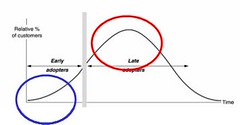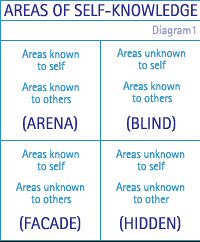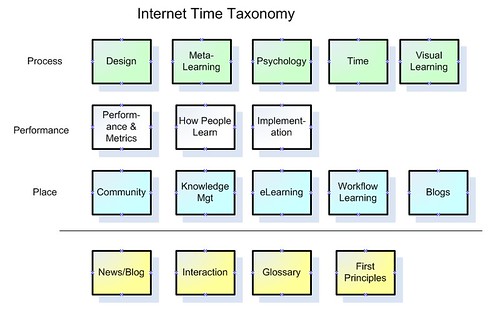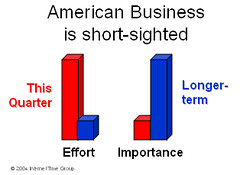Friday, December 31, 2004
 In the late 80s, California Assemblyman John Vasconcellos convinced our governor to set up a task force on self-esteem. Vasconcellos, who still represents Silicon Valley, now in the State Senate, lists his commitments on his home page; they include:
In the late 80s, California Assemblyman John Vasconcellos convinced our governor to set up a task force on self-esteem. Vasconcellos, who still represents Silicon Valley, now in the State Senate, lists his commitments on his home page; they include:- redesigning society to encourage development of healthy, self-realizing, responsible human beings
- developing a new human politics based on belief we human beings are innately inclined toward becoming life-affirming, constructive, responsible, trustworthy
 Vasconcellos believes that human beings are innately inclined toward becoming constructive, life-affirming, responsible, and trustworthy. He says "self esteem is at the heart of our capacity to lead lives of community, responsibility, productivity, satisfaction." Like many fashions and movements that seem hoaky on first hearing (e.g. organic farming, human potential, surfing), in time people across the country acknowledged the value of increasing self esteem.
Vasconcellos believes that human beings are innately inclined toward becoming constructive, life-affirming, responsible, and trustworthy. He says "self esteem is at the heart of our capacity to lead lives of community, responsibility, productivity, satisfaction." Like many fashions and movements that seem hoaky on first hearing (e.g. organic farming, human potential, surfing), in time people across the country acknowledged the value of increasing self esteem.
In an article in the January issue of Scientific American, authors Roy F. Baumeister, Jennifer D. Campbell, Joachim I. Krueger and Kathleen D. Vohs describe an intensive literature review and then attempt to blow the worth of self-esteem out of the water.
Boosting people's sense of self-worth has become a national preoccupation. Yet surprisingly, research shows that such efforts are of little value in fostering academic progress or preventing undesirable behavior.
Raising self-esteem is not likely to boost performance in school or on the job.
After coming to the conclusion that high self-esteem does not lessen a tendency toward violence, that it does not deter adolescents from turning to alcohol, tobacco, drugs, and sex, and that it fails to improve academic or job performance, we got a boost when we looked into how self-esteem relates to happiness. The consistent finding is that people with high self-esteem are significantly happier than others. They are also less likely to be depressed.
 These findings don't ring true to me. Isn't low self-esteem almost a marker for depression? I've experienced clinical depression; low self esteem was always right there with it. For creative people, the pessimism and listlessness that accompany low self esteem blind them to opportunities. Someone with confidence built on self esteem will take a chance on an activity the low-esteem person will pass up, thinking, "Nyah, that will never work." The authors of the article describe this as floccinaucinihilipilification (I am not making this up), which is "the action or habit of estimating as worthless."
These findings don't ring true to me. Isn't low self-esteem almost a marker for depression? I've experienced clinical depression; low self esteem was always right there with it. For creative people, the pessimism and listlessness that accompany low self esteem blind them to opportunities. Someone with confidence built on self esteem will take a chance on an activity the low-esteem person will pass up, thinking, "Nyah, that will never work." The authors of the article describe this as floccinaucinihilipilification (I am not making this up), which is "the action or habit of estimating as worthless."
 Floccinaucinihilipilification (Thank God for cut-and-paste) colors experimental results: you can't trust a floccinaucinihilipilificator to report anything correctly. The research team decided to eliminate any studies that didn't include objective measures throughout. This reduced their research base from 15,000 studies to 200. The team also rejected studies that did not demonstrably avoid the fallacy that correlation implies causality.
Floccinaucinihilipilification (Thank God for cut-and-paste) colors experimental results: you can't trust a floccinaucinihilipilificator to report anything correctly. The research team decided to eliminate any studies that didn't include objective measures throughout. This reduced their research base from 15,000 studies to 200. The team also rejected studies that did not demonstrably avoid the fallacy that correlation implies causality.
The researchers started with studies of self esteem and academic performance. They didn't find much correlation. This is hardly surprizing, since grades rarely correlate to anything outside of the school system. Next, they considered the world of work.
Even if raising self-esteem does not foster academic progress, might it serve some purpose later, say, on the job? Apparently not. Studies of possible links between workers' self-regard and job performance echo what has been found with schoolwork: the simple search for correlations yields some suggestive results, but these do not show whether a good self-image leads to occupational success, or vice versa. In any case, the link is not particularly strong.This is the only paragraph supporting the authors' claim that self-esteem is not likely to boost performance on the job!
Just as correlation does not prove causality, lack of evidence does not prove that something fails to exist. If you're researching other people's findings, isn't it possible that they failed to ask the right questions? One wonders how many of the less than 200 studies dealt with work, not school.
Last time I read Scientific American, it was a bit more, ah, scientific.
My suspicion has been that higher self-esteem is positively correlated with job performance. This article didn't change that belief.








 Cleaning my office is like an archeology dig. Most layers are just garbage, but occasionally there's a gem. For example,
Cleaning my office is like an archeology dig. Most layers are just garbage, but occasionally there's a gem. For example,
 Content syndication = distributing information outside of the primary place of creation/publication. "I suspect the next big wave will involve optimizing syndicated content behind corporate fiewalls. Of course, syndicated business news and information services have thrived on corporate portals and intranets for years. But it will be fun to see if RSS feeds take off as a way to distribute synicated content directly to corporate users," writes David Scott.
Content syndication = distributing information outside of the primary place of creation/publication. "I suspect the next big wave will involve optimizing syndicated content behind corporate fiewalls. Of course, syndicated business news and information services have thrived on corporate portals and intranets for years. But it will be fun to see if RSS feeds take off as a way to distribute synicated content directly to corporate users," writes David Scott. 

 Reichstag 1995, wrap by Christo
Reichstag 1995, wrap by Christo
 Parts of the wall were still visible in 1995.
Parts of the wall were still visible in 1995.

 I post to Internet Time Blog almost daily, and I hope my words retain more value than yesterday's newspaper. After all, the Blog is where I share my discoveries and interpretations, not perishable news. Nonetheless, on a standard Blog, the new pushes the old off the bottom of the page, out of sight, and out of mind, regardless of value.
I post to Internet Time Blog almost daily, and I hope my words retain more value than yesterday's newspaper. After all, the Blog is where I share my discoveries and interpretations, not perishable news. Nonetheless, on a standard Blog, the new pushes the old off the bottom of the page, out of sight, and out of mind, regardless of value.
 To keep longer-lived items from falling over the edge, I decided to catch some of the run-off in a
To keep longer-lived items from falling over the edge, I decided to catch some of the run-off in a 




 Learning for learning's sake doesn't interest me. I'm pragmatic. This past year, I began to shift my emphasis from the learner to the worker. In 2005, I plan to focus less on individuals and more on ecosystems. My interest is turning to improving the performance of connections between workers and the work environment.
Learning for learning's sake doesn't interest me. I'm pragmatic. This past year, I began to shift my emphasis from the learner to the worker. In 2005, I plan to focus less on individuals and more on ecosystems. My interest is turning to improving the performance of connections between workers and the work environment.
 For me, it's the year of the network connections. What's flowing back and forth to the nodes has my attention. What? Where? When? How? How much? How often? Quality? Impact?
For me, it's the year of the network connections. What's flowing back and forth to the nodes has my attention. What? Where? When? How? How much? How often? Quality? Impact?












 As every years winds down, my mental gears begin struggling to answer the question asked by the dog who got on the bus: "Now what?"
As every years winds down, my mental gears begin struggling to answer the question asked by the dog who got on the bus: "Now what?"





 A thumbnail (automatically generated)
A thumbnail (automatically generated)
 A display image (automatically generated)
A display image (automatically generated)















